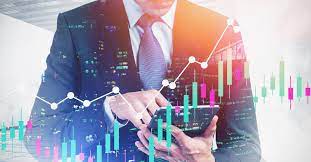Forex trading has gained immense popularity over the years. The global forex market is the largest financial market with over $6.6 trillion traded daily. To be part of this market, one requires a Forex Broker. A Forex Broker is a firm that provides traders access to the currency exchange market. As a beginner, understanding Forex brokers and the forex market can be a little confusing and overwhelming. In this article, we will help you understand the Forex broker and the basics of understanding the market.
1. What is a Forex Broker?
A forex broker is essentially a company or an individual that provides traders access to the forex market. Forex brokers give traders access to the necessary trading platforms, which allows them to buy and sell currencies. Forex brokers make their money by charging a small fee through the spread, which is the difference between the bid and ask price of currency pairs.
The spread varies from broker to broker and the type of account and currency pair being traded. forex broker offer different accounts types, including standard accounts, micro accounts, and mini-accounts which allows traders to choose their preferred trading option.
2. Types of Forex Brokers:
There are two main types of Forex Brokers – Non-Dealing Desk (NDD) brokers and Dealing Desk brokers (DD).
Non-Dealing Desk brokers allow traders direct access to the forex market, linking them up with liquidity providers to ensure that they receive the best possible pricing for their trades. With NDD brokers, the role of the broker is to match the trader’s orders with other traders’ orders or hedge funds. NDD brokers do not have a dealing desk in the trading process.
Dealing Desk brokers, on the other hand, directly provide liquidity to traders. They act as counterparties to their clients and take the opposite position against them. Most of them take a price from liquidity providers and mark it up by adding a small spread. This type of broker is also called a market maker and is still prevalent in the forex market but mostly avoided due to their unethical practices.
3. Choosing the Right Forex Broker
Choosing a Forex broker is an important decision and can significantly affect a trader’s success in the Forex market. Forex brokers offer different account types, leverage, spreads, and fees. It’s important to choose a broker based on your trading style, requirements and consider the country in which you are trading from.
Before signing up with any broker, make sure you check their regulation, and fees as it is important to be confident that the broker is legitimate. Regulated brokers are monitored by regulatory bodies, which ensure that they are following strict regulations and standards.
4. Understanding the Market
The forex market is one of the most volatile financial markets globally, and it’s very important that traders understand the market. It requires thorough analysis and research before making trading decisions. As a trader, you need to keep an eye on the macro and microeconomic factors that affect currencies.
Macroeconomic factors include interest rates, GDP, inflation reports, and political developments, while Microeconomic factors include company earnings reports. Every economic event and geopolitical risk can affect a currency’s value in the forex market.
5. Conclusion
Forex trading can be profitable and rewarding if you understand Forex brokers and the market. Choosing the right broker is essential in Forex trading and can make a significant difference in a trader’s success. Also, understanding the market and keeping up to date with market news and strategies can help in making informed trading decisions. As with any investment, it is essential to have a solid understanding of the forex market before trading, as risk and rewards can quickly shift.
Blog & Magazine
